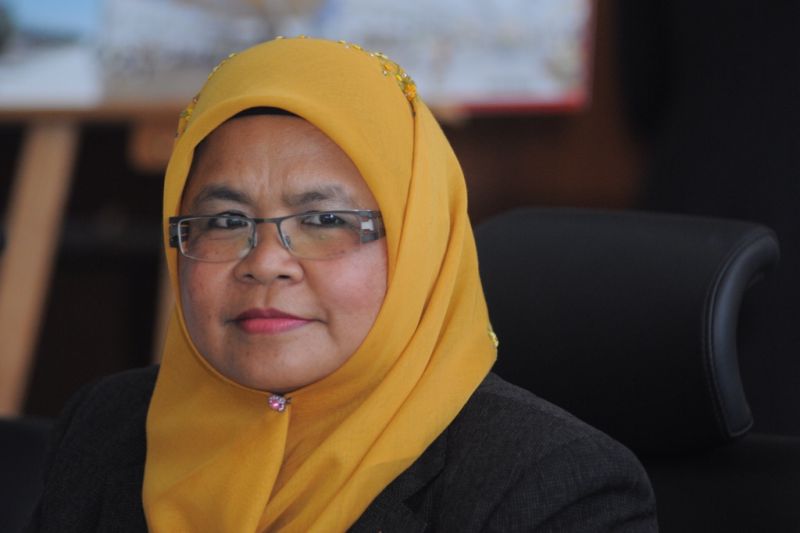Local and regional governments have been sharing their experiences, initiatives, and actions at the Live Learning Series hosted by the United Cities and Local Governments (UCLG), Metropolis, and the United Nations Human Settlements Programme (UN- Habitat). The initiative is aimed at supporting communities facing the pandemic through the provision of key basic services.

The third in the Live Learning Series, which was co-organised with the International Union of Public Transport (UITP) on Wednesday, April 8, 2020 brought together local and regional governments, partners from civil society, key actors in the transport sphere, and the United Nations to address issues around urban mobility and the pandemic.
The Governor of West Java, Ridwal Kamil; the Mayor of Strasbourg, Roland Ries; the Mayor of Banjul, Rohey Malick Lowe; the Mayor of Kigali, Pudence Rubingisa; and. Borja Carabante, Councillor of Madrid were joined by political representatives from Madrid, Mexico City, Shenzhen and Toulouse. The political representatives were joined by the UN-Habitat Executive Director, the Secretary General of UITP, the International Transport Workers’ Federation, the President of World Enabled and representation from Creative Mobilities.
The meeting was opened by the UN-Habitat Executive Director, Maimunah Mohd Sharif, who called for cities to ensure that “all modes of public transport are now considered a public service, to save lives and livelihoods. Cities must now sustain good public service and the trust in good public service.”
She said cities should prioritise access to those people who need affordable and safe transport most including those with disabilities and those employed in essential services. And she concluded: “I appeal to all to provide safe mobility today and to start planning the sustainable mobility of tomorrow.”
The Secretary General of UITP, Mohamed Mezghani, highlighted the need to maintain public transport networks during and after the outbreak, as a backbone of cities, and to ensure that the health crisis does not become a social crisis. He reminded the meeting of the joint statement signed with UCLG, the International Transport Workers’ Federation (ITF), and the International Union of Railways (UIC), that highlighted public transport as an essential service in the face of the pandemic and beyond, as well as integral for the right to move.
“We want to remind everyone of the crucial role of public transport in the midst of the COVID-19 crisis, the necessity to maintain this in the current context, and to thank again all public transport workers, our guardians of mobility, for professionally fulfilling their duties and providing a public service,” said the Secretary General.
Over 160 participants gathered online for the session that explored the challenges to ensuring the right to move in a pandemic that calls on people to stay at home. The first part of the session centred around local and regional actions and challenges regarding mobility amid the pandemic.
Local and regional leaders at the frontline, such as the Governor of West Java, addressed measures undertaken to ensure that population movements were slowed down regarding the homecoming during the Islamic holy month of Ramadan, which starts later this month. He highlighted how the province was working to maintain the delivery of goods and road transport to provide food for the more than 50 million people in West Java.
The Mayors of Banjul and Kigali addressed the challenges in mobility when it comes to cities with a large informal public transport system. The informal nature of many people’s work means they cannot afford to stay at home, and thus ensuring safe mobility calls for raising awareness, training public transport workers, and providing protective gear. The Mayors also addressed the need to rethink mobility going forward, and to foster sustainable urban mobility policies that can contribute to regeneration after the outbreak.
European cities are among the hardest hit by the outbreak. The Mayor of Strasbourg and the Deputy Mayor and Secretary of Transport of Madrid provided examples of measures undertaken to ensure physical distancing during the outbreak, and how public transport has been reinforced to ensure a regular connection with hospitals. Reducing the number of people allowed into buses and providing cleaning material to workers were some of the key day-to-day measures mentioned, and coordination among spheres of government and all social representatives were highlighted as essential to maintain safe and orderly transport measures.
The second part of the session highlighted how partnerships among local and regional government, transport unions and organisations, the private sector and civil society can contribute to ensuring alternative modes of urban mobility and develop a multimodal approach to mobility. The President of World Enabled called for a rethink of modes of transport around accessibility for all, highlighting that the crisis provides an opportunity to build back resilient.
The Secretary General of RMT highlighted the importance of protecting workers in the most vulnerable and poorly organized sectors of transport, and argued that the outbreak is now shining a spotlight on cleaners and workers that are often over-looked, saying this was essential for the well-being of societies.
The delegate general of Creative Mobilities called for linking culture and transport to ensure the right to move and to bolster the outreach of campaigns that bring to light the value of public transport.
Emilia Saiz, Secretary General of UCLG, closed the session highlighting the value of public transportation, as it ensures that that key basic needs are covered. She emphasised the importance of maintaining the regularity and frequency of public transport as well as hygienic conditions.
She underlined the need to “ensure that we have a safe way of staying at home, but also that we are able to take care of workers. People need to feel safe again in public transport, and this requires adapting to the new realities and providing continued information”.
